IT Arena 2025: AI, Technology and Humans in the Fight for Tomorrow
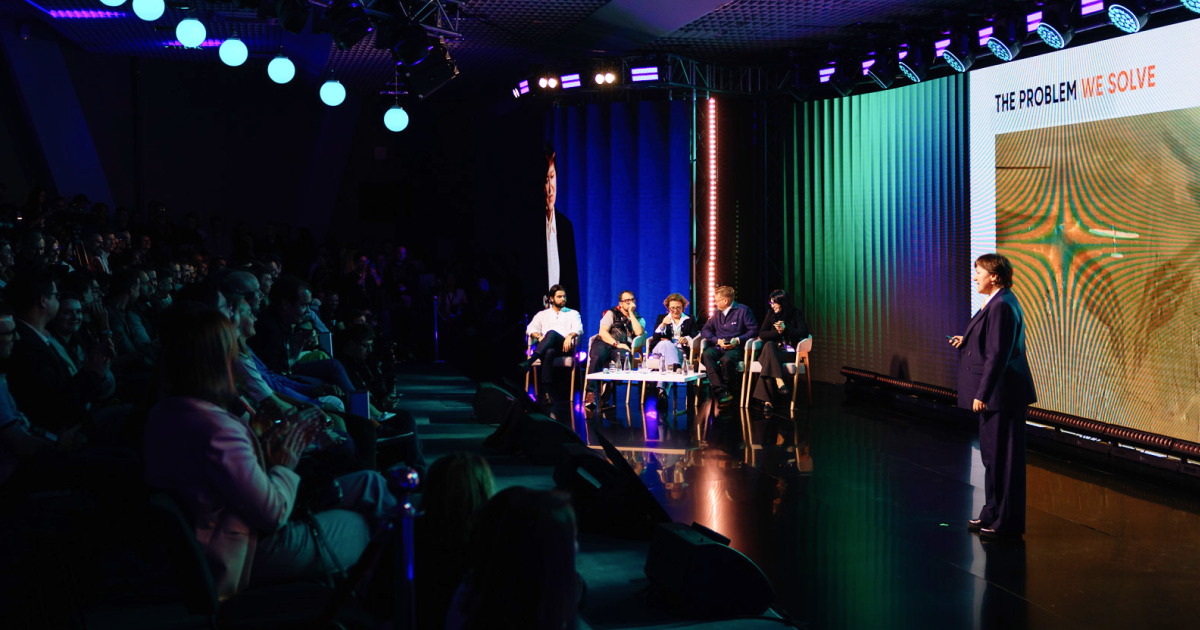
Can technology save the world — or, on the contrary, create a threat to humanity? Can artificial intelligence on the frontline make decisions faster and more accurately than people? And will Ukraine’s defense industry become the next global center of innovation? Questions that once sounded like futuristic hypotheses have become our daily reality.
From September 26–28, 2025, Lviv once again became a place where thousands gathered to discuss the future of defense technologies, artificial intelligence, cybersecurity, business transformation, and the resilience of Ukraine’s economy. IT Arena 2025 brought together 6,450 participants from more than 40 countries — entrepreneurs, investors, engineers, and thought leaders — to show that even in wartime, Ukraine is creating solutions that define global trends.
At the event, attendees could visit five thematic stages: Business, Tech, Product, Startup, and the new Defense Stage, dedicated to discussions in defense tech. From technologies born in adversity to innovative products opening new business opportunities, startups that have the potential to become unicorns, and defense breakthroughs, IT Arena 2025 showcased the ideas reshaping industries and the future of warfare.
“We held the first IT Arena 12 years ago. Back then, the event brought together 800 participants. This year, that number has increased eightfold. Moreover, each year we see more international delegations attending. This proves that despite the challenges of the full-scale war, Ukraine’s tech sector has not only maintained its resilience but continues to drive innovation. IT Arena has become a key platform where Ukraine’s tech specialists can present their products to the global business community and prove that the tech industry of the country has enormous potential to compete with global leaders and set international trends,” said Stepan Veselovskyi, Founder of IT Arena and CEO of Lviv IT Cluster.
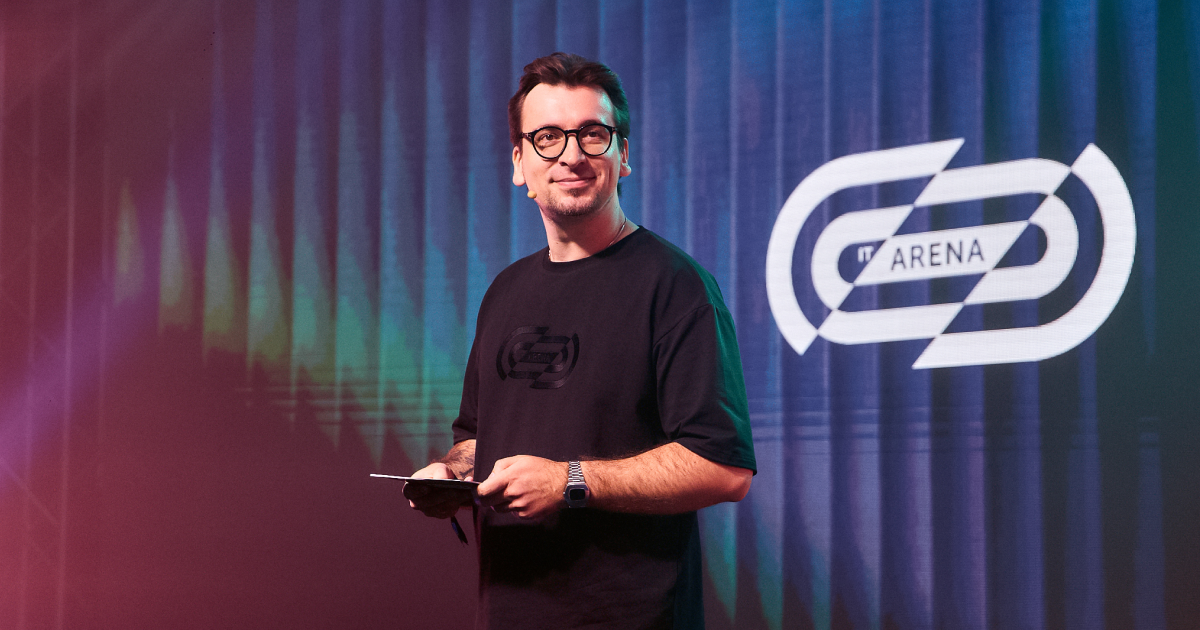
AI on the frontline and in government: driving change across industries and institutions
IT Arena 2025 confirmed that artificial intelligence is becoming a key driver of transformation across all domains — from defense to public administration and everyday life. On every event’s stage, experts shared practical cases, research results, and their vision for the future. During the panel “Artificial Intelligence on the Frontline,” speakers discussed how algorithms assist in making critical battlefield decisions.
“It’s about the speed of signal recognition — just like automatic target detection, but in the electromagnetic spectrum. As threats now evolve at the speed of software, countermeasures must also learn and respond dynamically, transforming both tactics and strategy on the battlefield,” said Dr. William “Dollar” Young, expert in electronic warfare.
Speakers emphasized that the combination of algorithms, human decision-making, and combat experience forms a new era of warfare — one in which code, technology, and people operate as a single unit in real time.
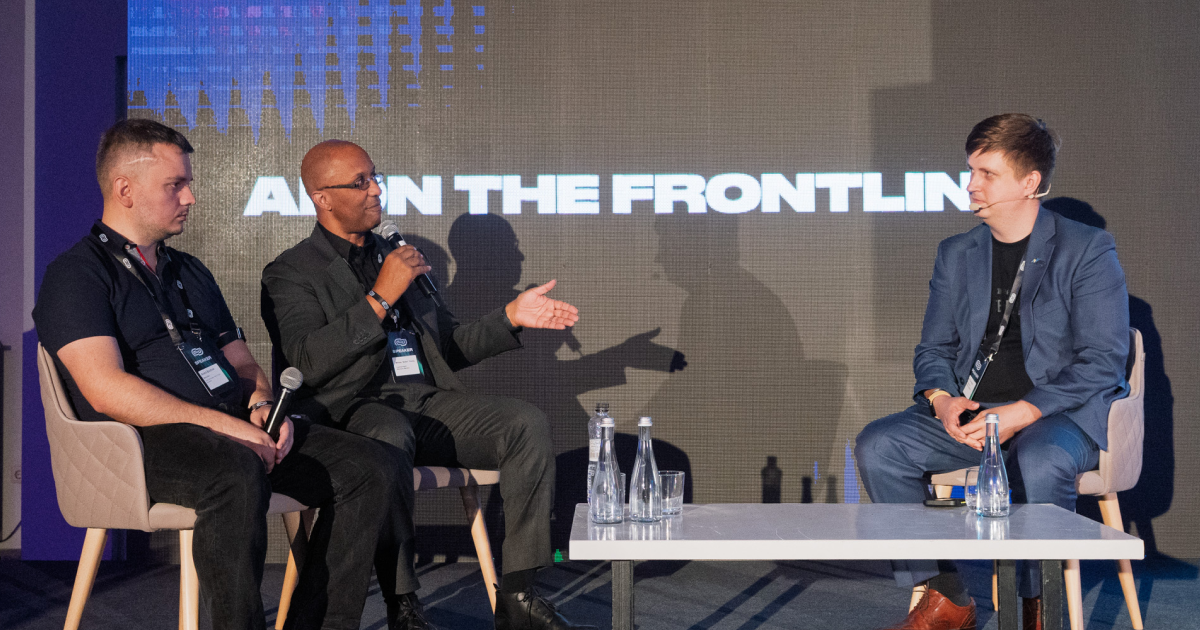
“Many companies have big ambitions for AI, but only 5% truly succeed. To be among those 5% of winners, companies should focus on an AI adoption strategy,” said Alina Okhremenko, Chief People & Operations Officer at Trinetix.
Beyond AI’s impact on warfare, the event also addressed its role in corporate culture and business.
“Companies that focus on AI can earn up to three times more, but it’s crucial to transform processes effectively. There needs to be people responsible for this within the company — a dedicated innovation center that monitors how AI is implemented, tracks processes, and evaluates team performance. This is not just about implementing technology; it’s about changing the culture within the company. Research shows that one of the biggest challenges in adopting AI is precisely a cultural one”, said Vadym Vlasenko, Director of AI at EPAM Ukraine.
Artificial intelligence is also actively used in government management. On the Business Stage, Mykhailo Fedorov, First Deputy Prime Minister and Minister of Digital Transformation of Ukraine, presented a revolutionary innovation — his digital twin, which Ukrainians can interact with directly via chat.
“The main task of AI is to solve people’s problems. We created a chatbot so that no idea goes unnoticed and talented people don’t remain unseen. Through the chatbot, Ukrainians can share ideas on digitalizing state services, send their resumes to join our team, report issues with e-services, ask questions, or receive recommendations for personal and professional growth. This is a step into a new era of interaction between citizens and the state — one where technology enables fast, transparent, and effective communication and problem-solving,” he explained.
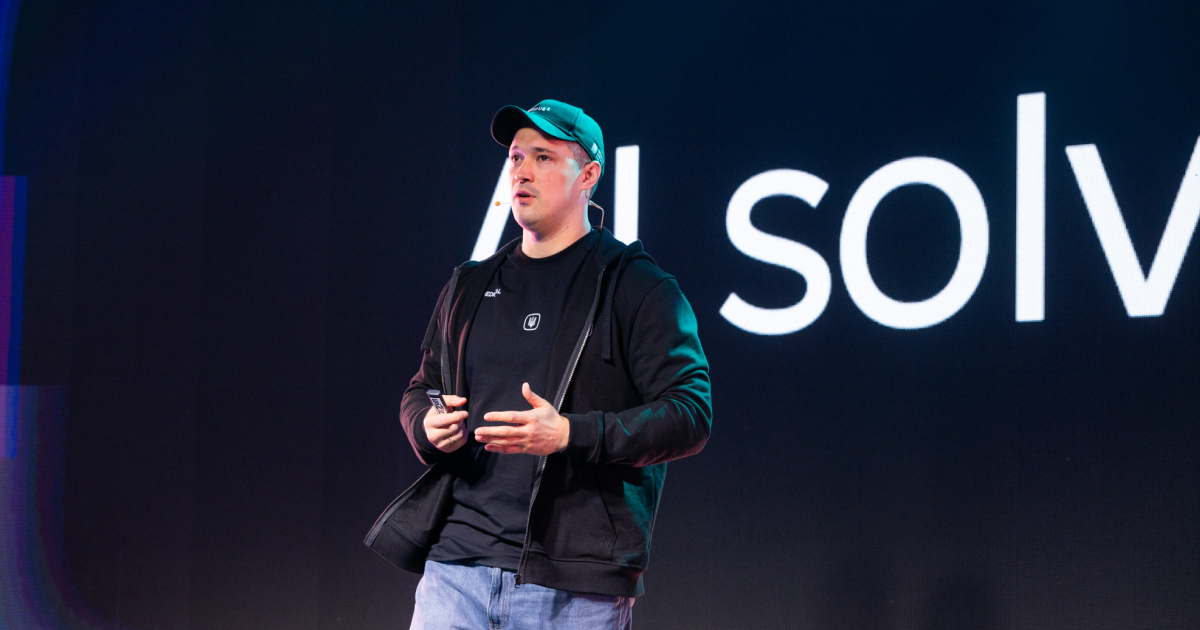
Technology of war: how defense innovations help protect the country
The theme of defense technologies ran throughout IT Arena 2025. This is precisely the area that interests our international partners and media representatives, as Ukraine today is not only a battlefield but also a place where wartime innovations are tested in real conditions.
“I came to Ukraine as a volunteer in April 2022, and that’s when I realized this ecosystem — defense tech — is bound to take off. We’re witnessing a revolution in this field, and I’m incredibly proud to be part of it. We’ve already closed six deals,” said Justin Zeefe, Founding Partner, Green Flag Ventures.
Modern warfare is increasingly becoming a war of drones, and IT Arena hosted active discussions about their role on the frontline. Dmytro Gorlin, Director of Engineering at Quantum-Systems Ukraine, noted:
“They are the eyes and ears of our army — they see and hear. We create tools that save lives and protect the country. It’s an extremely complex task, as human lives depend on it. We combine hardware, software, and artificial intelligence.”
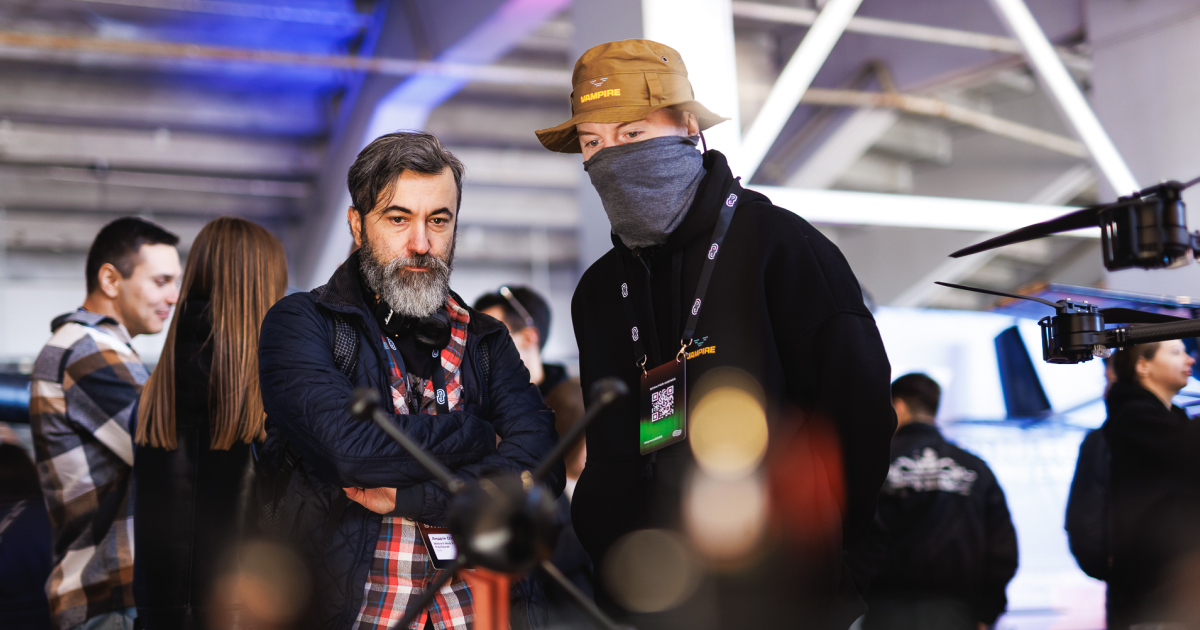
Government representatives, in turn, emphasized the importance of digitalizing the military and fostering collaboration between business and government to strengthen defense capabilities. Oksana Ferchuk, Deputy Minister of Defense of Ukraine for Digital Development, Digital Transformations, and Digitalization, emphasized:
“For the ministry, the main challenges are insufficient competencies, limited capacity, and working under extremely tight deadlines as the war situation evolves daily. For the IT sector, the issues include a lack of clear rules for cooperation with military IT units, a high number of pro-bono requests from both unit-level and higher command, and limited real impact on the digitalization of the Armed Forces. The solution lies in fostering cooperation and creating a transparent process for legalizing private defense solutions for the military,” Ferchuk said. She added that digitalization accelerates decision-making and supports the army at all levels.
The biggest startup battle: which product will become the next unicorn?
Traditionally, IT Arena hosted a battle of the most ambitious innovations — the Startup Competition. Tech teams competed in two categories: the general and a special one for defense tech and cybersecurity projects. The winners in the general category were:
- Ovul — a fertility and hormonal health tracker based on saliva sample analysis.
- Heft — a cattle health and fertility monitoring system.
- StackBob — an AI-powered identity and access management platform that automates onboarding/offboarding, and manages passwords and licenses.
In the defense category, the winners were:
- Dwarf Engineering — a UAV control assistant that ensures mission continuity and optimization when communication is lost, simplifies operator workflows, and operates on edge devices using proprietary algorithms.
- BabAI — AI-powered software that enables drones and satellites to detect and autonomously evade threats in real time.
- Bravo Dynamics — combat-tested mesh communication systems providing reliable, high-speed connectivity for unmanned platforms, even in GNSS- and radio-denied environments.
The total grant prize pool was $60,000. The first-place winners in each category received $15,000, the second-place winners $10,000, and the third-place winners $5,000.
Meanwhile, this year’s investment fund reached a record $15,000,000. Out of this sum, startups gained the opportunity to raise nearly $2,500,000:
- $800,000 from Wolver Ventures and New Frontier Fund for Bravo Dynamics, Zmiyar, Strug, and BabAI ($200,000 each);
- $250,000 from Depo Ventures for A42;
- $125,000 for Bravo Dynamics from United Angels Network.
Additionally, the Ukrainian-American investment group MITS Capital has announced its intent to invest in five teams: Blue Arrow, DroneMate AI, Zmiyar, STOZHAR, and SlimBeam. The founders of these startups have received soft commitments to join the MITS LAB and MITS Accelerator programs, with the accelerator currently forming its third batch. Successful graduates of the MITS Accelerator receive $200,000. 50% in the form of direct investment, and the remaining 50% as legal, consulting, educational, and mentoring support, network building, achieving product-market fit, and facilitating fundraising and scaling.
At the same time, 1991VC continues talks on $500,000 investments with selected teams, while Double Tap Investments is finalizing funding agreements with DroneMate, Strug, and Barvinok5.
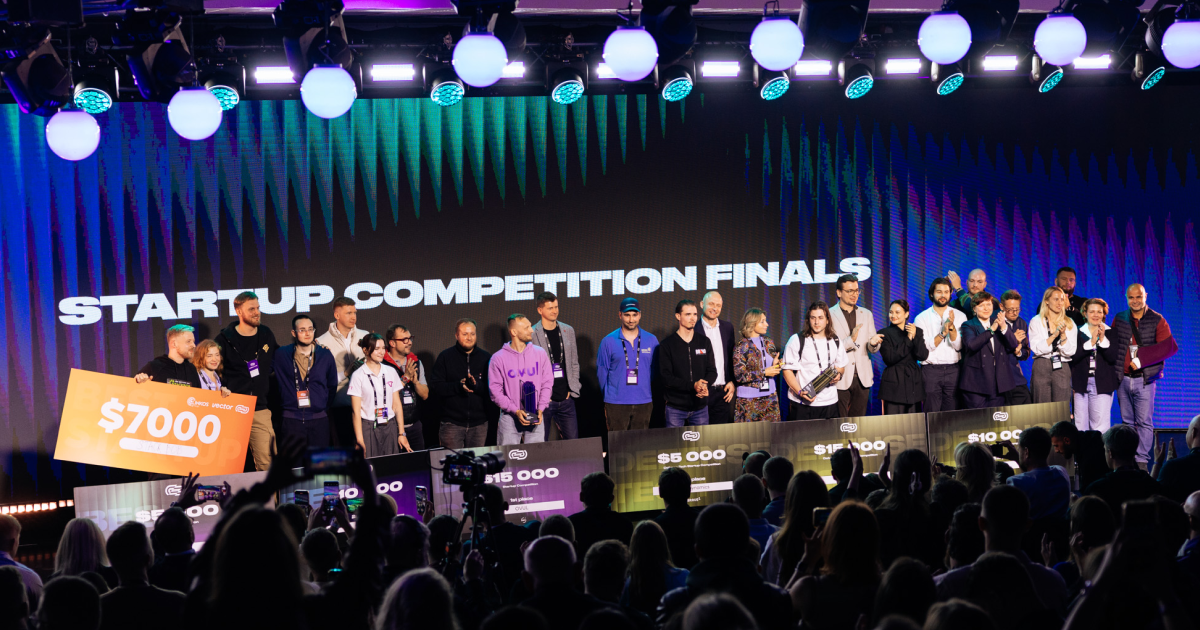
Afterparties and networking: building connections at IT Arena 2025
Each evening, IT Arena continued with afterparties and networking events — places where new connections and agreements were made. The second day of the event ended with a powerful performance by Ukrainian singer and activist Jamala, who also took part in a panel discussion on women’s leadership. Together with business representatives, Jamala discussed the contributions of women leaders amid global challenges.

In addition to the partner expo, where companies showcased their products, and the startup expo, this year’s IT Arena featured the first-ever Made in Ukraine Showcase — a platform for Ukrainian services and solutions already operating on the domestic market. A highlight of the event was also the Defense Expo — featuring 100+ cutting-edge technologies shaping the future of defense. On the event’s final day, attendees connected at over 50 meetups across Lviv’s most vibrant cafes, restaurants, and pubs.
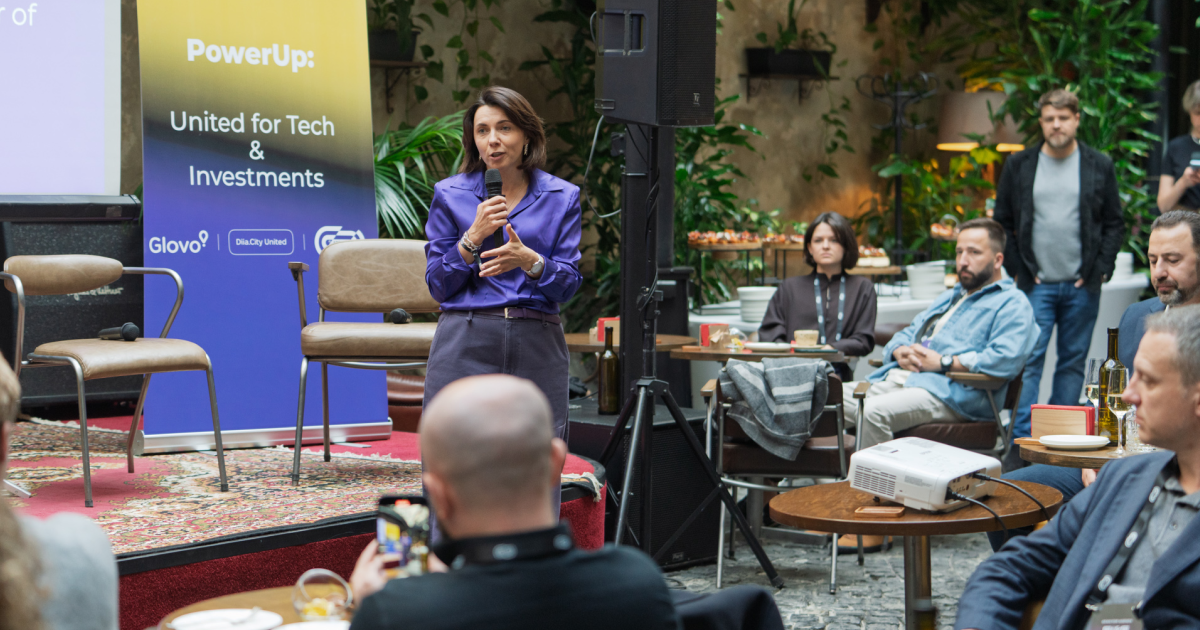
Despite the challenges of full-scale war, IT Arena once again united thousands of professionals, startup founders, investors, tech companies, and experts to exchange experiences, network, and launch new projects. We are grateful to the Armed Forces of Ukraine for making such a large-scale event possible — and to all participants and partners. In just a year, IT Arena 2026 will return with a new program and fresh opportunities.
Organizer: Lviv IT Cluster
Exclusive government partner: Ministry of Digital Transformation
Exclusive banking partner: UKRSIBBANK BNP Paribas Group
Exclusive automotive partner: BMW
Exclusive partners: EPAM, Ministry of Defense of Ukraine, Trinetix, Google, Quantum Systems
Gold partners: Qubstudio, N-iX, Kyivstar Business, Conscensia, IT-Jim, Sigma Software, Tomcas IBM, IITD, Favbet Tech, Every Matrix, Simply Contact, BAKOTECH, SharksCode, SoftServe, British Embassy Kyiv, BRDO, Expertise France Groupe AFD, EU4Innovation East, European Union, France.
Media partners: Scroll, Vector, SPEKA, AIN
The co-organizers of the Startup Competition are IT Arena, Brave1, and USF.
Startup Stage partners – u.ventures. Pitch partner – keywords.agency.
Buy Early Bird Ticket and Save up to $350
